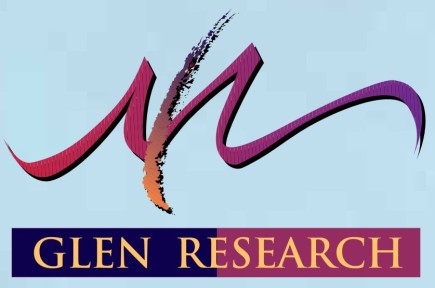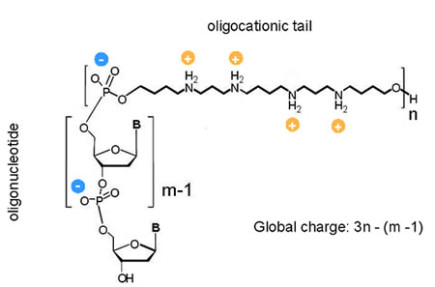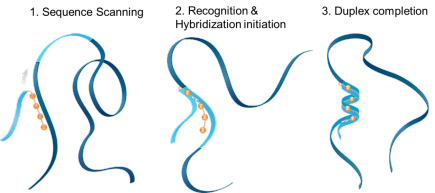Summary
A new article on Zip Nucleic Acid (ZNA®) has been published in The Glen Report of May 2016 (Volume 28, Number 1). ZNA® are powerful cationic oligonucleotides especially designed for molecular biology, diagnostic and therapeutic applications.
ZNA molecules
ZNA® are a novel class of modified oligonucleotides enhancing hybridization properties of nucleic acids. ZNA® are oligonucleotides conjugated to cationic units. Their global charge can be modulated by the number of cationic spermine moieties grafted on each oligonucleotide. The ZNA® technology is applicable to any application involving oligonucleotides. However, the global charge of ZNA defines per se the fields of applications.
When negatively charged, ZNA® conserve their ability to mediate specific hybridization with complementary strands and they are more suitable for PCR applications, amplifications techniques, and diagnostic applications or purifications technologies.
On the contrary, positively charged ZNA® are more likely to mediate first a non-specific binding/interaction with polyanions through electrostatic interactions before their possible specific hybridization to a target sequence through bases pairing. ZNA® molecules bearing excess of cationic charges were shown to have the property to stick to anionic cells surface and to trigger endocytosis, leading to cell transfection without the need of a transfection reagent (or a cargo). ZNA®-based siRNAs or antisenses were shown to perform effective and specific gene silencing and inhibition in animal cells.
About Glen Research
Glen Research is a biotechnology company that develops and sells material used for diagnostics, sequencing and therapeutics. This Polyplus-transfection partner has added ZNA® to its large range of products after recognizing its efficiency. Twice a year, Glen Research publishes a report presenting different technologies and this year, ZNA® is featured!

Many scientific publications have been released regarding ZNA®. You can see some publications in the ZNA® page in the tab “citations”.
Please feel free to see more information about the article at: http://www.glenresearch.com/GlenReports/GR28-11.html



